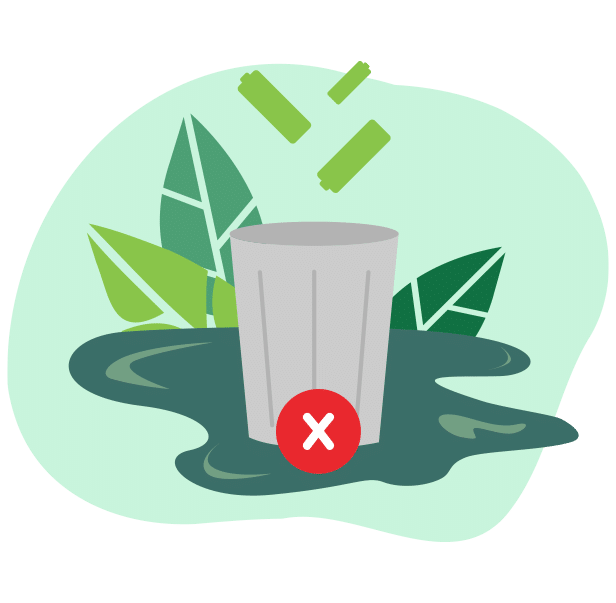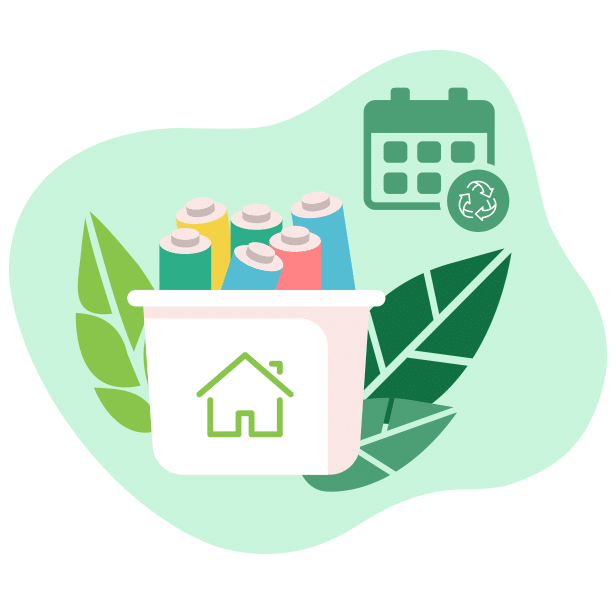
Health:
When batteries are not recycled, they usually end up on the street or in landfills, which often overflow. Then, much of the waste ends up in the ground or water, burdening natural resources with harmful materials. As a result, they can affect the flora and fauna of the area since living organisms absorb toxic materials with water, air and food and can hardly excrete them. Thus, by consuming water and food, whether of animal or vegetable origin, these harmful materials reach our plates and accumulate in our bodies. This phenomenon is called bioaccumulation, and besides being of great concern to environmentalists, it also causes various health problems. Many poisonings have been recorded from time to time due to heavy metals, and some of them, such as cadmium, are considered carcinogenic. Also, apart from heavy metals, batteries contain corrosive acids, which cause problems for human organisms, especially for the eyes and skin.
Environment:
The age we live in is the age of outstanding technological achievements. As the need for raw materials constantly increases, the risk of destroying the environment grows. More specifically, many of the minerals we use daily are components of the earth’s crust, not synthetically prepared chemicals – and therefore do not break down.
Of course, if these materials remain in the environment, they can cause habitat loss and affect the biodiversity of each area. For example, lithium batteries can cause fires that burn for a long time, releasing harmful gases that slow down efforts to combat the greenhouse effect and intensify the climate crisis.
By recycling batteries, we prevent all the unpleasant effects of disposing of batteries in landfills, thus safely protecting nature, health, and our future.
Sustainability:
Recycling is a process that should now become part of our lives. In addition to protecting the environment from pollutants, another significant benefit is the reduction of waste of raw materials.
The European Union has already established relevant legislation to limit the reckless use of heavy metals: since 1/1/1993, the marketing of batteries with a quantity of mercury above 0.005% by weight has been prohibited, and the upper limits of heavy metals in water have been established, the atmosphere and the ground, as well as the relevant penalties for offenders. But the most important action was the legislation to introduce alternative management systems in all the countries of the European Union. The corresponding body in Greece for portable batteries is AFIS.
In addition, we recycle materials that can be reused back into the production stream. Metals, in particular, belong to the category of materials that are relatively easily recycled. We can use various industrial methods to separate them and then use them to make new products. When it comes to the extraction of minerals/metals, the energy consumed during mining and processing the ores is many times greater than that consumed to extract the same materials through recycling. More specifically, it is estimated that for each piece of battery that is recycled, the percentage of energy saved reaches up to 80%.




